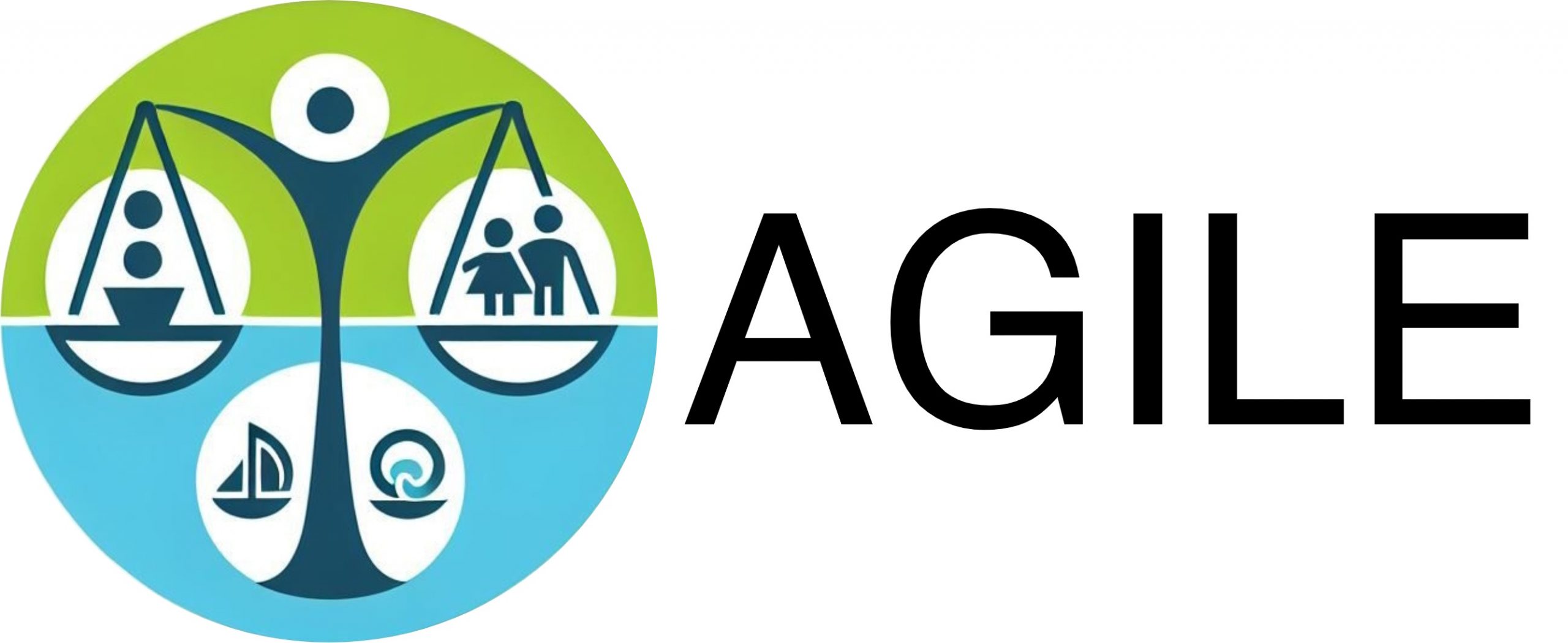Work Packages
What are the priorities of men and women in ‘work’ and ‘life’? Why are men still under-represented in parental leave ? Does new EU-regulated work-life balance policy equalize parental leave for men and women? What firm-level work-life balance policies do employees look for at their work-place? Do leaders and HR departments hinder or facilitate work-life balance, and how? AGILE work-life balance policy answers these questions in 5 Work Packages.
Work Package 1
Research question
What are citizens’ perspectives on work-life balance and what are the implications for identify formation?
What?
WP1 examines citizens’ perspectives on work-life balance and agility, focusing on values, time use, and the balance between work, care responsibilities, and personal activities. It emphasizes gendered perceptions, care roles, and participation in domestic tasks, aiming to provide insights often overlooked in work-life balance literature.
How?
WP1 analyzes existing datasets like the World Value Survey and HETUS, complemented by an original survey in four countries, focusing on flexibility in work and care roles. Additionally, 5–10 focus group interviews per country will address survey blind spots. Insights from Iceland’s survey and collaboration with experts will guide the methodology.
Who?
Caroline de la Porte, Zhen Im, Manuel Alvariño, Kristina Dahlin
Work Package 2
Research question
What are the national work-life balance policies and outcomes?
What?
WP2 investigates the implementation and take-up of work-life balance policies, including parental leave and work flexibility. It examines the gap between regulatory frameworks and citizens’ actual use of these rights, focusing on factors influencing fathers’ lower engagement in parental leave and the implications for trust in state legitimacy.
How?
WP2 employs qualitative analysis in four case countries, using policy documents and elite interviews, alongside quantitative analysis of father-specific leave across all EU countries. The latter uses Eurostat data and leave policy information to explore sociodemographic disparities in leave take-up. Insights will culminate in two academic articles.
Who?
Manuel Alvariño, Zhen Im, Caroline de la Porte
Work Package 3
Research question
What are the work-life balance practices in firms and what do they suggest about workers priorities?
What?
This WP explores the role of business leaders and HR departments in implementing and shaping work-life balance policies at the firm level. It focuses on sectoral and organizational differences in norms, perceptions, and practices, including how gendered and gender-neutral approaches to work-life balance affect workplace dynamics.
How?
The WP analyzes data from 24 top-performing companies in Denmark and Europe, selected from the “Great Places to Work” rankings, using interviews, focus groups, and secondary data. Textual analysis contextualizes findings across sectors and countries, with a focus on how firms communicate and implement EU work-life balance policies.
Who?
Louise Mors, Caroline de la Porte
Work Package 4
Research question
What lessons can be learned about work-life balance for businesses?
What?
This WP develops practical insights for businesses and stakeholders on facilitating and addressing challenges in implementing work-life balance policies. It highlights the dilemmas companies face, such as balancing competitiveness with workforce retention and offering generous work-life balance policies.
How?
Drawing on findings from WP1 and WP3, this WP creates educational case studies to explore workplace attractiveness, covering work-life balance, wages, and intrinsic job value. Pilot cases will be reviewed by the practitioner board and integrated into academic and executive courses at CBS, with guidance on case writing from experts.
Who?
Manuel Alvariño
Work Package 5
Research question
How can work-life balance be theorized, considering citizen perspectives, comparative country insights and firm level practices?
What?
WP5 aims to develop a novel, multi-level theorization of work-life balance, integrating insights from citizens, businesses, and policy frameworks. It seeks to move beyond fragmented understandings by creating a typology of AGILE work-life balance.
How?
Drawing on data and analyses from WPs 1–3, this WP iteratively connects empirical findings with theoretical frameworks. Researchers collaborate to identify key conceptual categories, ensuring a dynamic exchange between theory and practice throughout the project.
Who?
Manuel Alvariño, Zhen Im, Kristina Dahlin, Louise Mors, Caroline de la Porte
Get in touch.
If you have any questions or inquiries, do not hesitate to reach out.
